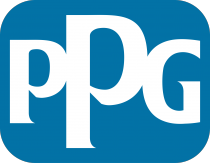Global Therapeutic Proteins Market Report 2020: Market was Valued at $93.14 Billion in 2018 and is Expected to Grow to $172.87 Billion through 2022 - ResearchAndMarkets.com
The "Therapeutic Proteins Global Market Report 2020" report has been added to ResearchAndMarkets.com's offering.
The global therapeutic proteins market was valued at about $93.14 billion in 2018 and is expected to grow to $172.87 billion at a CAGR of 16.7% through 2022.
The therapeutic proteins market consists of sales of therapeutic proteins. Therapeutic proteins provide important therapies for diseases such as diabetes, cancer, infectious diseases, hemophilia, and anemia.
Advance technologies for protein-based drug development drives the therapeutic proteins market. Therapeutic proteins cannot be synthesized chemically, they need to be produced by genetic engineering and recombinant DNA technology in living cells or organisms.
Protein-engineering platform technologies such as glycoengineering, pegylation, Fc-fusion, albumin fusion, albumin drug conjugation help to increase the production yield, product purity, circulating half-life, targeting, and functionality of therapeutic protein drugs. Belimumab, ipilimumab, taliglucerase alfa, albiglutide, coagulation factor IX recombinant human are some therapeutic protein drugs developed using protein engineering technologies approved by FDA in the past five years.
Increasing biosimilar drugs in global market decline the growth of the therapeutic proteins market. Patent expiry of therapeutic proteins such as monoclonal antibodies give space for entry of biosimilar. In EU, AbbVie evidenced patent expiration of Humira (adalimumab) in 2018, five biosimilar of Humira from Mylan, Amgen, Sandoz, Samsung Bioepis received drug approvals from European commission to enter the EU market. These cost-effective treatments similar to original biologics decline the revenue and sales of therapeutic proteins.
Monoclonal antibody drug approvals are increasing in the protein therapeutic segment. Chronic diseases such as cancer, immunological disorders are well treated with monoclonal antibodies. Monoclonal antibodies are dominant and well-established product class in the protein therapeutic segment with more safety and immunogenicity than antibodies.
Cell-based expression systems such as Chinese hamster ovary (CHO) mammalian cell expression system with latest technologies increased the productivity of monoclonal antibodies by overcoming the problems associated with earlier antibody drugs. In last five years, FDA approved 213 drugs, among them 44 are monoclonal antibodies. In 2018, twelve monoclonal antibodies were approved by FDA for the treatment of cancer and immunological disorders.
In the United States, therapeutic protein drug manufacturers file therapeutic biologics application (BLA) to FDA for the product approvals. The drug approved through BLA should be proved as safe, pure and potent. FDA consolidated review of most therapeutic proteins in Center for Drug Evaluation and Research (CDER). In European Union, biologics are regulated by Committee for Medicinal Products for Human Use (CHMP) for marketing authorization.
In June 2018, Sanofi, a therapeutic solutions provider acquired Ablynx for $4.8 billion. With this acquisition, Sanofi strengthen its R&D strategy with the addition of Ablynx's nanobody technology platform. Sanofi will also focus on technologies addressing multiple disease targets with single multi-specific molecules. Ablynx, a biopharmaceutical company based in Ghent, Belgium, that develops proprietary therapeutic proteins based on single-domain antibody fragments.
Major players in the market are Abbott Laboratories, Amgen Inc., Baxter International Inc., Eli Lilly and Company, F. Hoffmann-La Roche Ltd
Other Companies Mentioned
- Pfizer Inc
- Johnson & Johnson
- Merck & Co. Inc
- Novo Nordisk A/S
- Sanofi
- Biogen Inc
- Genentech Inc
- Generex Biotechnology
- Genetech
- Merck Serono S.A
- AstraZeneca
- Boehringer Ingelheim
- Chugai Pharmaceutical
- Diasome Pharmaceuticals
- GeneScience Pharmaceuticals,
- Hualan Biological Engineering
- CSL Behring
- Kyowa Hakko Kirin
- Oramed Pharmaceuticals
- Sandoz International
- Teva Pharmaceutical Industries
- AbbVie
- Bristol Myers Squibb Co
- Novartis
- ProBiogen AG
For more information about this report visit https://www.researchandmarkets.com/r/p2gpo3
View source version on businesswire.com: https://www.businesswire.com/news/home/20191223005228/en/



